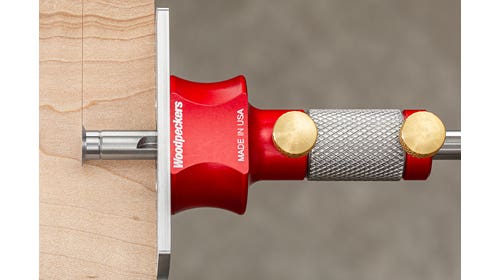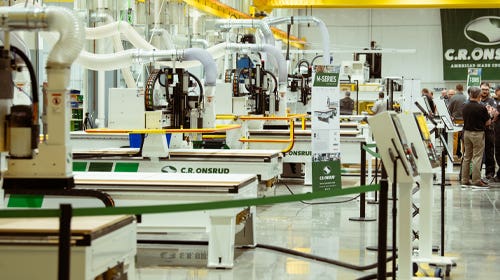Plywood sellers deal with tariff implications
Tariffs on plywood and paneling, particularly from Canada, are causing anxiety among customers, impacting order volume and purchase timelines. While prices are currently stable, suppliers are unable to guarantee pricing for more than seven days, affecting long-term projects.
Tariffs are a hot topic in the hardwoods market, especially for plywood and paneling. While prices are relatively stable, customers are worried about an increase, which is having an impact on order volume and purchase timelines, according to suppliers interviewed by Woodshop News.
“We’re seeing a lot of anxiety because every vendor right now is throwing a tariff notice on their products, stating tariff prices could spike at any point and a tariff charge could be charged at any time during the buying process. Everybody is on edge. They’re expecting at least a 10 percent across the board on everything, even if it’s domestic,” says Dave Norman, of Parkerville Wood Products in Manchester, Conn.
“A lot of the plywood comes out of Canada, but some comes out of Asia, and then Baltic birch. But anything coming out of Canada has been a little bit of a concern because a lot of plywoods move through there.”
Norman tells customers that at the moment, things are holding stable with prices rising slightly. But pricing can’t be guaranteed for more than seven days.
“Many jobs are bid weeks, if not months ahead of time, and the seven-day price hold is not helping with jobs that were bid quite a while ago.
“The other thing I’ve seen is that products are getting tied up in containers, and people need to buy something local to keep things rolling. There’s a lot of nonsense that happens with this sort of thing. We got a load of hardwood about a month and a half ago, and the paperwork on the tariffs that came with it was like a book. So, there’s a lot of paperwork that can slow things down as well,” says Norman.
Michael Johnsa of Suwanee Lumber in Suwanee, Ga., says that since the April announcements of sweeping tariffs, consumers have expected all the imports to go up, which has affected pricing and costs to them and competitors in the region.
“In general, it’s not a huge change. It’s not a huge tax like a lot of people were calling us and asking us about. But what that has led to is that a lot of people are really bulking up their inventories, especially on the import products, in expectancy of those items getting higher in price probably within the next six months. So, in the past month, we’ve sold probably 20 to 30 percent more than normal, which is good, but we are expecting prices to continue to go up a little bit,” says Johnsa.
Originally published in the June 2025 issue of Woodshop News.






